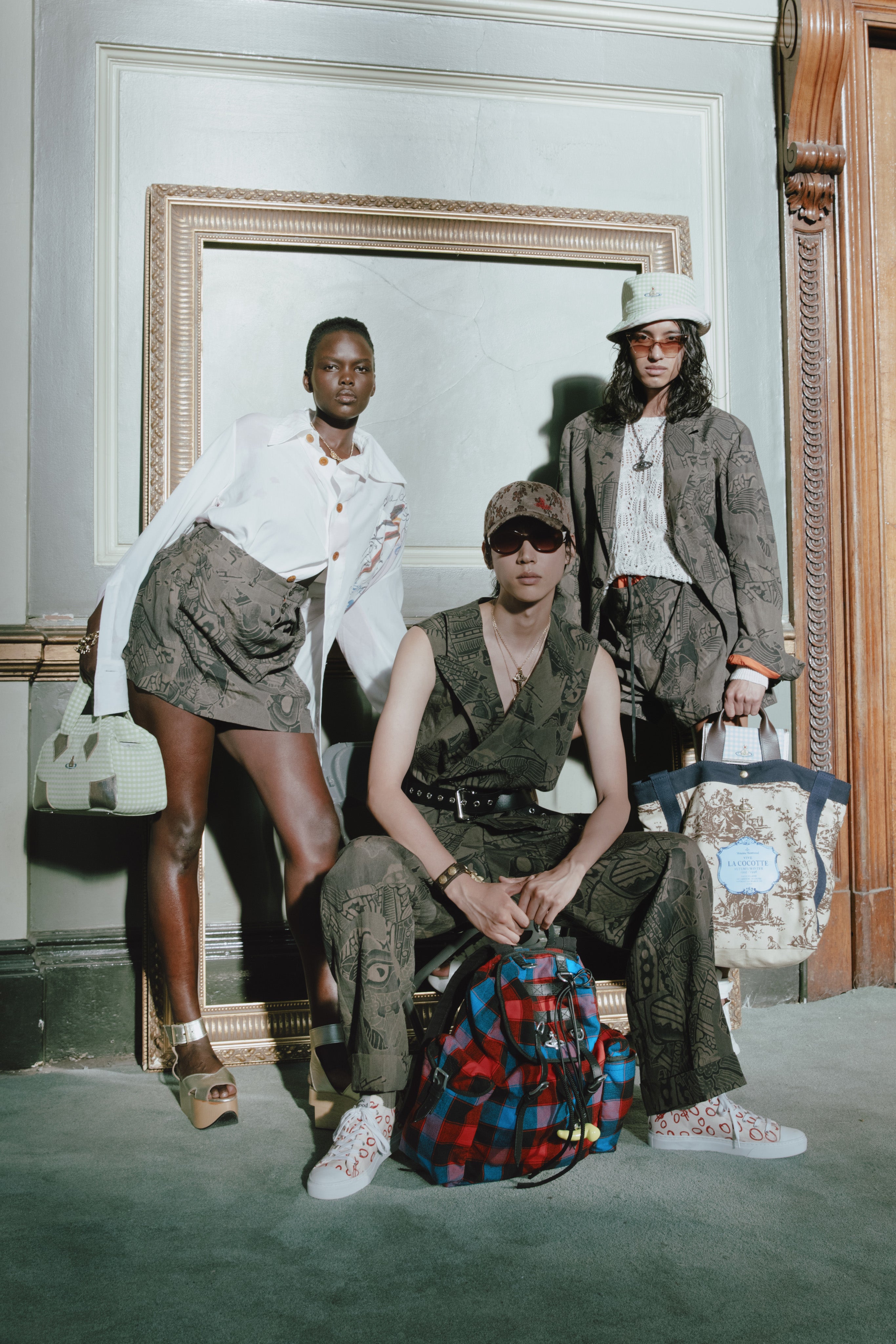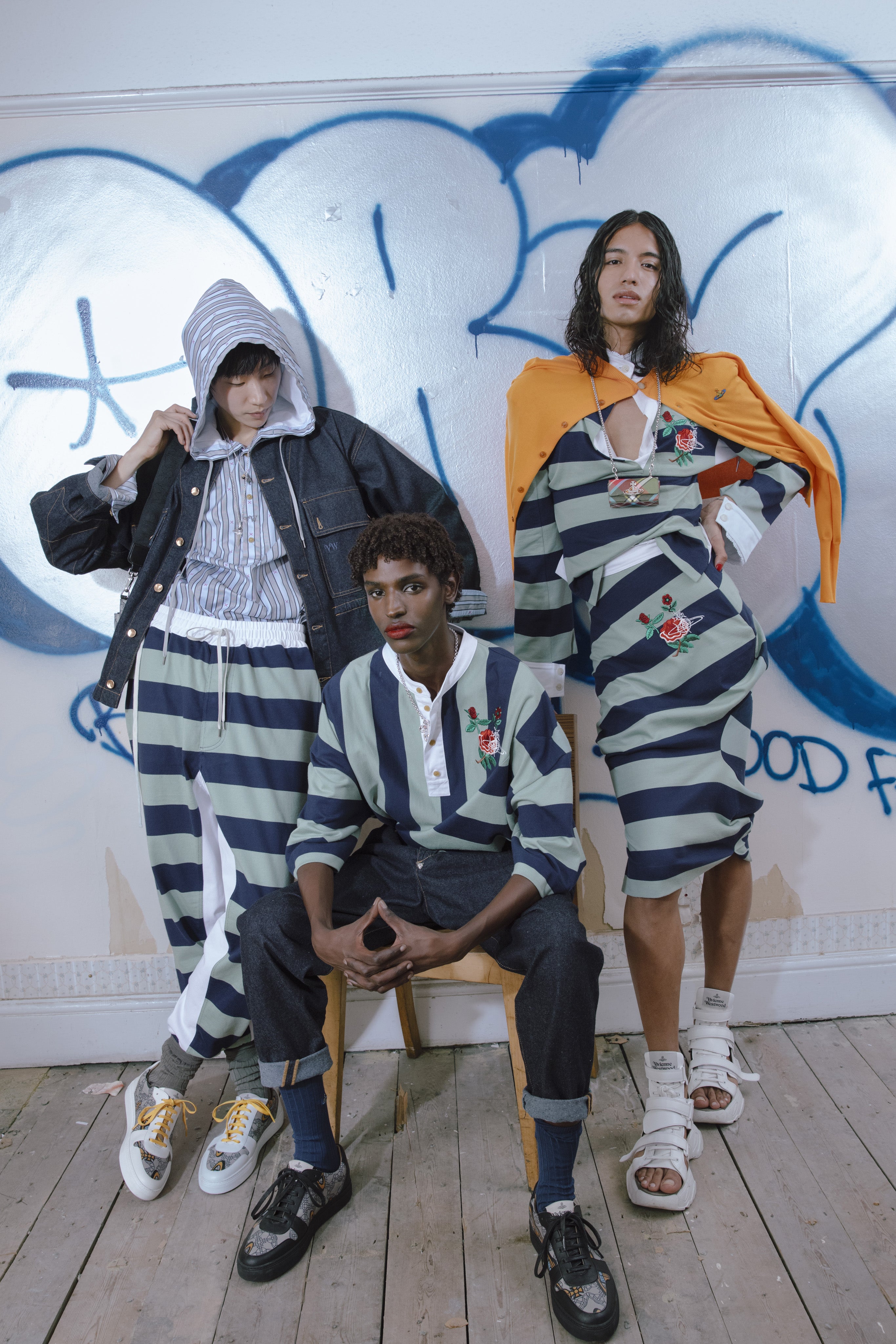‘Profit should not be at the expense of our planet’: Designers on sustainability at London Fashion Week
As LFW draws to a close, Olivia Petter examines how designers have adapted their processes to combat the climate crisis


Your support helps us to tell the story
From reproductive rights to climate change to Big Tech, The Independent is on the ground when the story is developing. Whether it's investigating the financials of Elon Musk's pro-Trump PAC or producing our latest documentary, 'The A Word', which shines a light on the American women fighting for reproductive rights, we know how important it is to parse out the facts from the messaging.
At such a critical moment in US history, we need reporters on the ground. Your donation allows us to keep sending journalists to speak to both sides of the story.
The Independent is trusted by Americans across the entire political spectrum. And unlike many other quality news outlets, we choose not to lock Americans out of our reporting and analysis with paywalls. We believe quality journalism should be available to everyone, paid for by those who can afford it.
Your support makes all the difference.It’s London Fashion Week and there’s an elephant in the room – or, on the runway, shall we say. Sustainability has been a buzzword in the industry for the last few years, with designers high and low keen to capitalise on the rising demand for clothes that help rather than harm the planet. But it’s a feat that is famously easier said than done. After all, how environmentally friendly can a fashion brand ever be when it’s fundamentally always going to be pushing for consumption rather than against it?
It’s a question that disappointingly few designers grappled with this season. In fact, the subject was seldom mentioned in the litany of press releases that overwhelmed the fashion pack’s inboxes this weekend. Instead, buyers, influencers, and members of the media lined the FROWs and turned a blind eye as designers debuted their new collections without so much as even acknowledging the plight of the planet they might be contributing towards.

There were, however, some brands that did confront the issue head-on. Take Vivienne Westwood, fashion’s original eco-warrior. The 80-year-old punk icon and climate activist never fails to take an opportunity to call out the industry’s wrongdoings, having memorably staged a protest at LFW in 2019. Actor Rose McGowan was joined on the catwalk by men and women of all ethnicities and sizes – including John Sauven, executive director of Greenpeace – to host a polemic against consumerism.
This season, despite the fact that Westwood abstained from a runway slot, her message was as loud and clear as ever. Titled “Save Our Souls”, the collcetion took its cues from the sea, looking to English pirates and the idea of clothes needing to undergo a “sea change”, so to speak, in order to save the planet.

A feat in environmentally friendly fashion, the total amount of low impact and cruelty free materials used was 98 per cent, with Westwood utilising materials such as organic cotton, recycled cotton, organic silk, recycled polyester, responsibly sourced viscose and mulesing free wool, or, in some cases, a combination of these.
More than 90 per cent of the designer’s fabrics are made with h monomaterial or blended with materials coming from the same category as a way of making them all much easier to recycle. Similarly, the brand’s long-term goal of erradicating virgin synthetic fibres has been reached with this collection. Just one material contains elastane, however, it is recycled.
None of this compromises on the clothing. A mix of the designer’s signature tartans, there’s plenty of dynamic tailoring, with suit jackets popping out at the waist in that classic Westwood silhouette. Elsewhere, a “drunken corset” top stands out with its twist on classic shirting, while paisely prints find their way onto waistcoats and smocks. To the untrained eye, it looks like a regular vibrant fashion collection. And yet, it’s probably the most eco-friendly thing on display at LFW.
There were notable sustainability measures elsewhere, with Roksanda among those utilising fabrics such as organic cotton, recycled polyester taffeta, and environmentally friendly satin. But out of those staging fashion shows, none put the climate crisis front and centre quite like Osman Yousefzada.
It began with the setting. The British designer, who grew up in a conservative Muslim, Afghan-Pakistani immigrant family, staged his show at Amazonico, a Latin American restaurant in Mayfair whose leafy interiors make you feel as if you’ve just sat down in a rainforest. The fine dining establishment also has a partnership with global reforestation charity One Tree Planted, and for every guest in attendance at the Osman show, one tree was planted in the Brazilian Amazon forest. As if that wasn’t enough, there was alsothe poetry reading that interrupted the show midway through, reminding all those in attendance of the urgent threat we all face when it comes to saving our planet from destruction, a message that was crystalised with morbid lines like, “They found the knife that killed me” and “no one sent me the ashes”.
As for the clothes, they were no less obviously sustainable than Westwood’s, with sequin playsuits, sheer gowns, and hand-woven organza tops all making appearances in strong couture-like silhouettes. And yet, 15 looks were made from TENCEL™ Luxe, a luxury filament mafe from sustainably sourced wood pulp (yes, really) that was used to create filament with properties similar to silk. The resulting clothing is certified as biodegradable – and Osman’s collection illustrates its sheer versatility.
“We can either work in changing the system or overthrow it,” says Yousefzada. “Making profit should not be at the expense of others nor at the expense of our planet. The system can still exist, but the materials need to change.”
Biodegradability, he says, is key. “I think it’s the only way we can consume,” he adds. “Of course it’s a journey, of relearning and re-educating on the damage we have done to our environment. TENCEL™ has been doing advanced work in this field, so it was a dream when they said they would support me with fabrics made of their biodegradable TENCEL™ Luxe filaments for this collection.”
As for how easy it was to work with the materials, Yousefzada explains it was a hugely liberating experience. “The main to and fro has been around how much we can state that a piece is biodegradable - their filaments are indeed completely so; but once you start adding elements like dye, stitching, zips, buttons, etc - it becomes less of a claim,” he explains.
“But as I’ve said, this is a ‘journey’ into biodegradability. We are going to bury a dress from the collection and then unearth it next season and have it analysed by biotech professors and share those results. It’s a process, but important to start somewhere.
Let’s hope other brands soon take note, and get started themselves.
Join our commenting forum
Join thought-provoking conversations, follow other Independent readers and see their replies
Comments